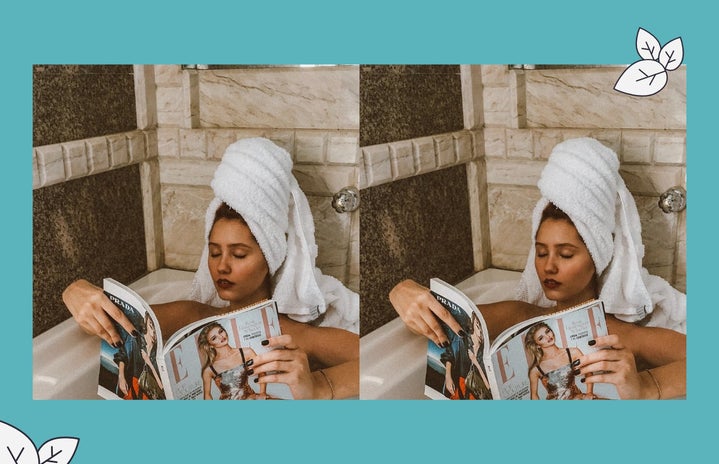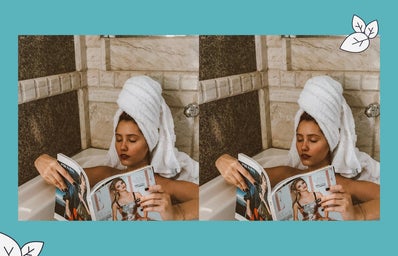While spa culture is alive and thriving across Europe — in many countries, health insurance actually subsidizes medical spa treatments — there is really no good substitute in the U.S. For example, when I studied abroad in Austria, my friends and I would cross the border into Germany to visit a spa and spend four hours relaxing, all for only $16. In Tbilisi, Georgia I rented a private room for just $30, split between my friend and I. When was the last time you could float in sulfur baths or immerse yourself in cold water following a hot tub session in the U.S. without spending a fortune?
A visit to the spa boasts many health benefits. For example, soaking in hot water can help you de-stress, something all college students need, and can help with body aches or pains. Bathing in salt water or sulfur water is guaranteed to leave you with softer skin. Plus, there’s always massages, scrubs and face masks that add to the experience
Luckily for you, there are actually some easy ways to bring spa culture to your own home. You don’t even have to spend that much to get the experience!
Switch from hot water to cold in the shower.
One of the most common spa therapies you can find throughout Europe and Asia is spending time in the sauna, followed by a plunge into a cold pool. While saunas don’t actually get rid of toxins, as many people commonly think, spending time in such a hot environment can improve heart health and circulation. In addition, when this experience is paired with a cold plunge, the sustained increased heart rate between the two extremes is equivalent to time spent in the gym.
You can easily recreate this sensation in your shower by starting with an too-warm shower and then, once you have taken in the steam for a few minutes, switching immediately to cold water. You can repeat this a few times during your shower, or steam it up before making the drastic change at the end. As you are sure to feel more awake afterwards, this is probably something you should be doing in the morning, rather than at night.
Related: What To Do If Hard Water Is Making Your Hair Dull, Damaged & Frizzy
Engage all of your senses.
Another thing that makes a spa a spa (and not just a series of swimming pools) is the atmosphere. For example, there is often calming music playing and atmospheric lighting. There are also often relaxing smells, such as lavender, which can affect your mood, metabolism and stress levels. All of these can be easily replicated in your own home!
For example, when preparing an at-home spa day for yourself, pick up a few candles with your favorite scents beforehand. Set up a playlist with your favorite calming music. And remember to dim the lights or change your light bulbs from insanely bright incandescent ones to something a little softer — maybe invest in some fairy lights, for example. If you want to go above and beyond, make yourself a cup of tea that you drink after your shower. All of these small steps will go a long way to recreating the spa experience in your bathroom.
Don’t forget the masks and scrubs.
Last, but certainly least, no spa day would be complete without some kind of mask or scrub — or both! Have fun playing around with all the various different kinds of masks and scrubs on the market, from feet and hand masks to lip exfoliation. You can rotate through them to get all the benefits, or just stick to a solid favorite.
Emily, a senior at the University of Alabama, uses face masks from Lush around three times a week. “The thing with face masks is that it’s a really nice self-care thing and it only takes ten minutes.” If you don’t feel like going out and buying some, you probably have some good ingredients in your home already, such as honey, lemon, avocado, and coffee.
There are so many reasons you deserve a good spa day, and surprisingly, there isn’t much you need to do to set up one for yourself. As college students, I’m sure we all understand that self-care is important. However, even if you only do one or two of the things listed, you are sure to reap the benefits.


